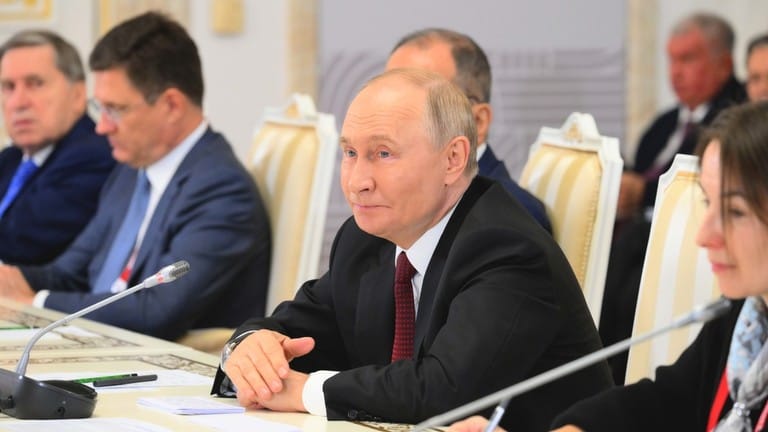
Russia, the current chair of BRICS, believes that blockchain technologies and crypto can become an important driver of economic growth and strengthen economic ties with other BRICS members.
President Vladimir Putin's statements on the first day of the BRICS Summit in Kazan and related statements made earlier at the BRICS Business Forum suggest that the country sees the widely discussed BRICS new payment system as an alternative to the existing Western dollar-based system.
Russia Proposes Alternative Financial Systems For BRICS Based On DLT
Russia suggests creating a new payment platform and a kind of unified currency that would bridge the national currencies of the members and reduce geopolitical risks.
The BRICS Moscow Business Forum officially debuted BRICS Pay, a new global payment system featuring a digital wallet that integrates with various blockchain networks. No more details have been disclosed yet, but allegedly, the app will support BRICS members' CBDCs and traditional fiat payment methods. A trial version allowed the partners to test it on small transactions within the venue.
The service for cashless payments from foreigners may appear in Russia this year and may also work for Russians outside the country in 2025. Alternative payment methods are of the utmost importance for Russia. Due to sanctions, international trade payments are complicated for the country. Russian citizens cannot use their bank cards abroad, while Visa and MasterCard do not work in the country.
According to Russian Finance Minister Anton Siluanov, the new "unbiased" payment system is designed to replace banking organizations and introduce a mechanism for transmitting financial messages.
The forum also discussed a common depository system, BRICS Clear, and a settlement platform BRICS Bridge, which will allow direct transactions between them in national currencies. These initiatives also include support for digital assets.
Earlier, Putin and Brazilian President Luiz Inacio Lula da Silva shared their ambition for BRICS to launch its own global currency. According to some sources, it might be replaced by a unified unit used for settlements within the BRICS Bridge.
Russia Advances Crypto Infrastructure Through Private / Public Partnership
According to Vladimir Putin, Russia will offer its BRICS partners the use of digital currencies in investment processes. The instrument might allow Russia to enter not only BRICS members’ markets but also to expand its reach to developing countries. The proposal is reportedly being discussed with China, India, and Brazil.
“We want to propose to our colleagues the use of digital currencies in investment processes. And not only in the BRICS member countries but also by the BRICS member countries in the interests of other developing economies. Moreover, we can make such an instrument practically non-inflationary,” - he shared.
Putin has not detailed what 'investment processes' would mean in this context, but at the same time, the Russian Direct Investment Fund (RDIF) suggested the creation of a joint investment platform for participating countries to invest in high technologies, including AI. Use of digital currencies on this platform might allow them to bypass sanctions.
BitRiver, a leading Russian cryptocurrency mining company, is one of the key players in this scheme. BitRiver and RDIF, which work as co-investors alongside international institutional investors, have entered into a strategic partnership to collaborate on projects in artificial intelligence and build data centres in the BRICS countries.
BitRiver was launched in 2017 and rapidly became one of the main data centre operators in Eurasia. The growth was greatly facilitated by Russia's favourable conditions for crypto mining, such as cheap electricity and a cold climate. Today, BitRiver Group has 20 operating data centres, and ten more centres are in the construction stage. The company is reportedly set to launch the largest data center in Eurasia with 100 MW capacity in the second half of 2024.
Although the U.S. sanctioned BitRiver in 2022 and the company lost several international partners, such as Japan’s SBI and U.S.-based Compass Mining, it continues to grow through strong domestic support. It now works in partnership with Gazprom, a Russian majority state-owned energy corporation, and En+ Group, founded by one of the most famous oligarchs, Oleg Deripaska.
Another confirmation of the government’s growing involvement in the industry is that it is preparing a legal basis for new operations. Last week, the Financial Monitoring Service proposed introducing licensing of crypto exchanges in the country. It is expected that most of the bills will be adopted by the end of 2024.
Earlier this year, Russia approved crypto laws favouring mining and cross-border payments with crypto. Now, companies and individual entrepreneurs can mine legally. Meanwhile, the Central Bank works on an experimental platform for using cryptocurrencies in international payments.

